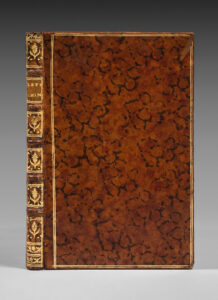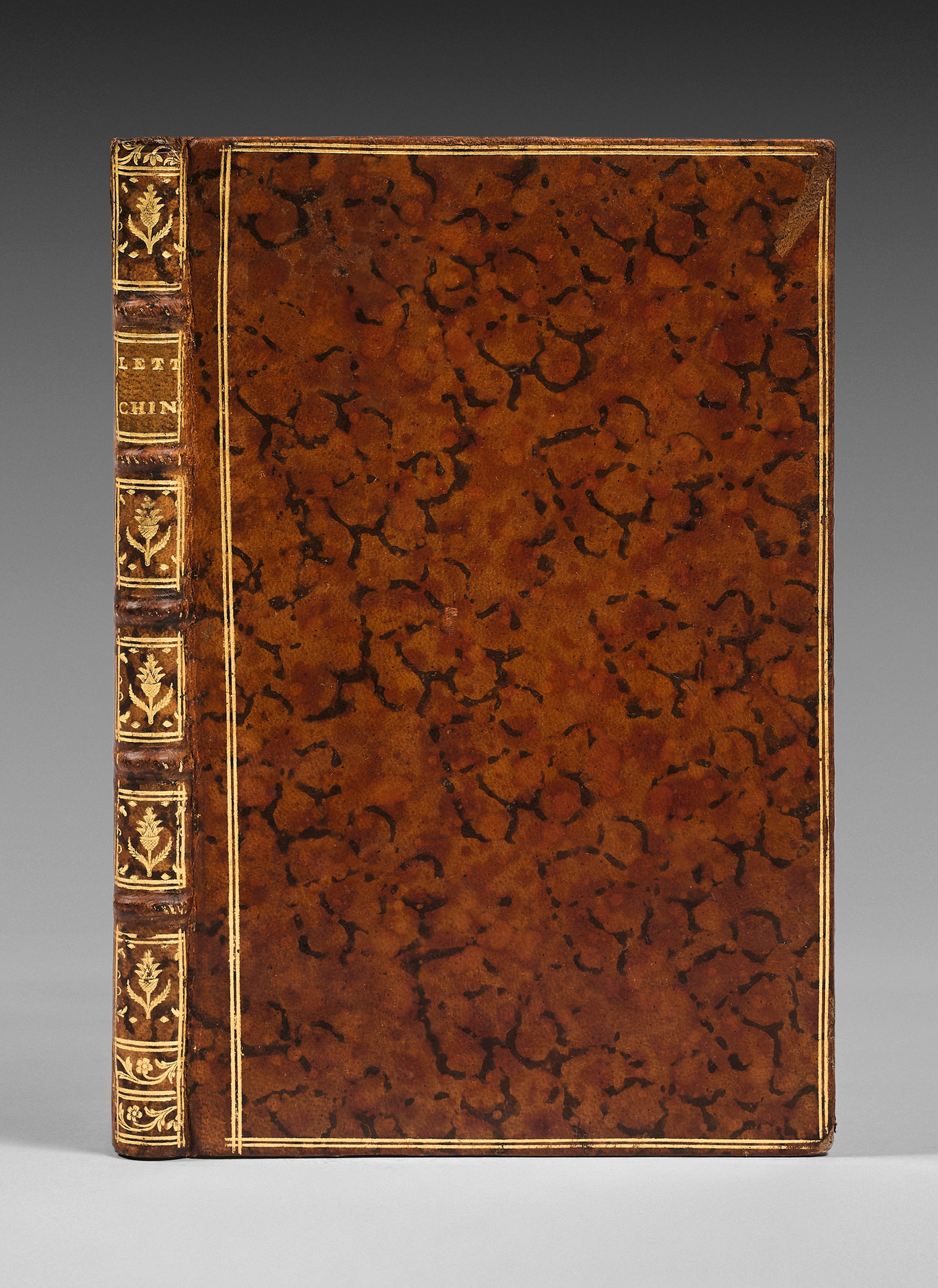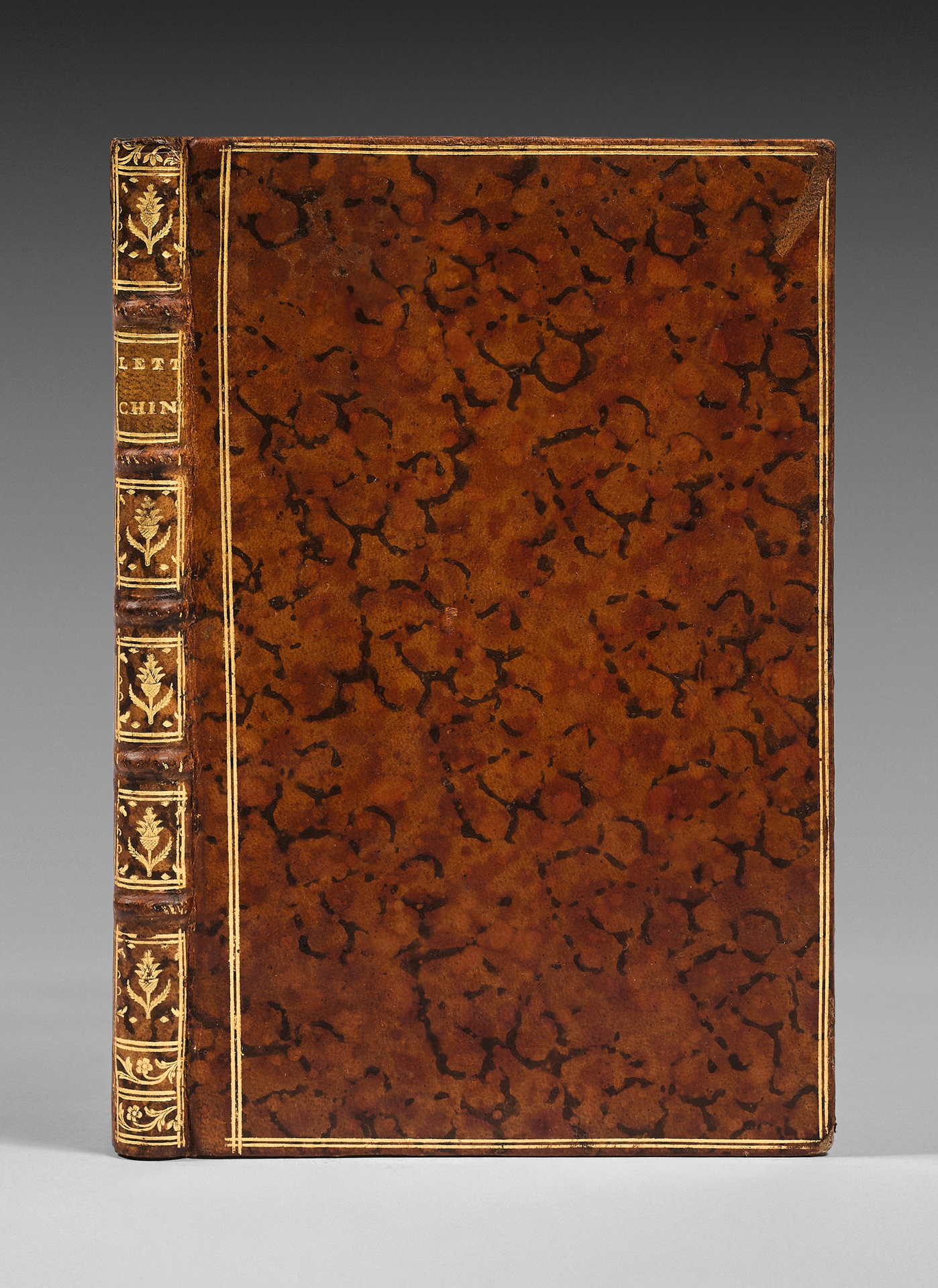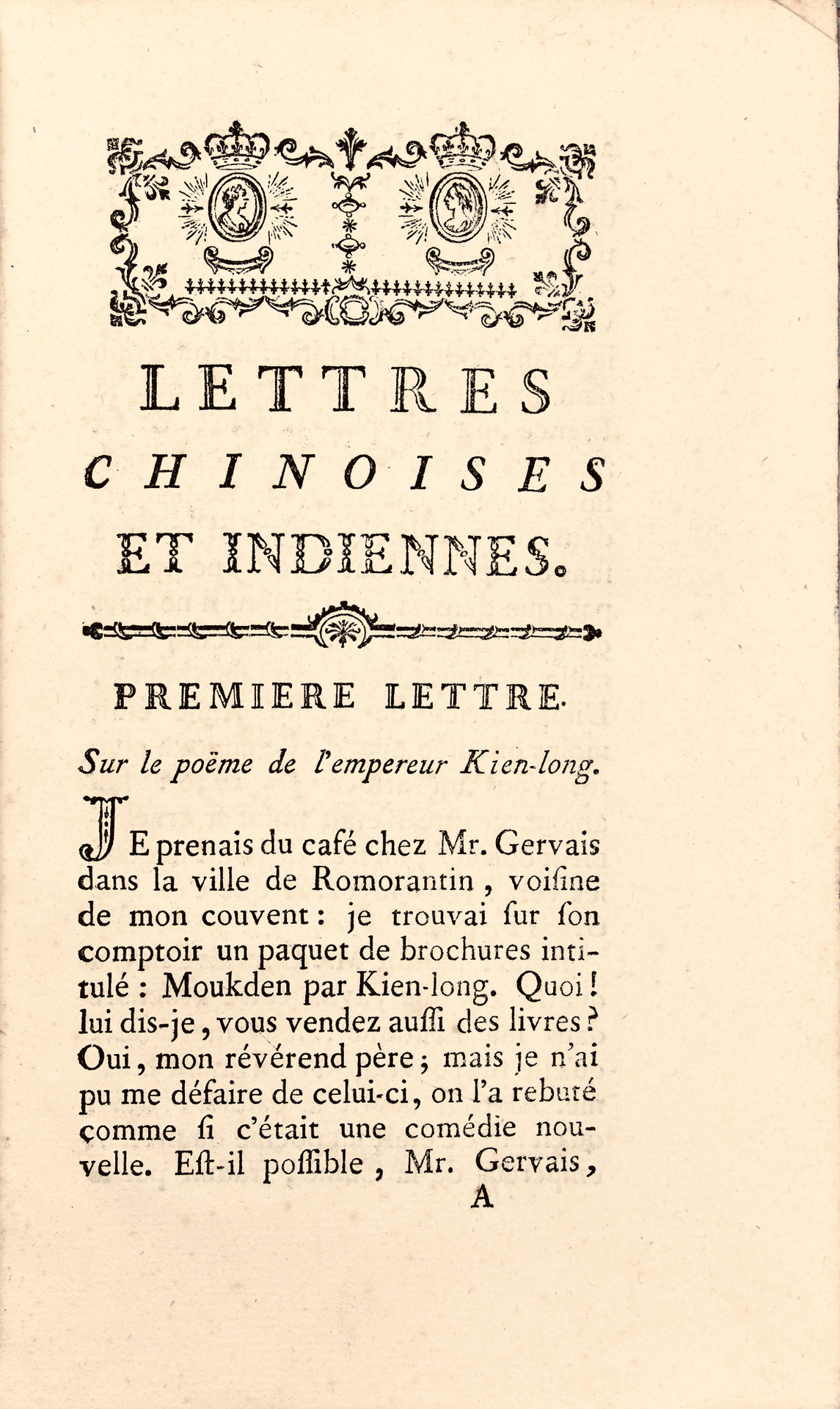Paris, 1776.
8vo [196 x 123 mm] of (2) ll., 126 pp. Full marbled calf, double gilt fillet around the covers, spine ribbed and decorated with gilt fleurons, marbled edges. Contemporary binding.
First edition of this work in which Voltaire “responds to the attacks of Mr. De Pauw on the origins of the Chinese people, Christianism in China, Chinese sciences and arts…” (Song, Voltaire et la Chine).
Corneille de Pauw, Canon of Xanten, who lived at the court of Prussia, had published, in 1772, some Recherches philosophiques sur les Egyptiens et les Chinois (Philosophical resêrches on the Egyptians and the Chinese) (2 volumes 8vo) and in those resêrches Chinese people were not spared.
Voltaire, who always glorified this nation, thought of replicating to Paw.
At the end of 1775, he announced to Frederic some letters he “took the liberty of writing to Mr. Pauw on his Chinese, Egyptians and Indians”. Frederic rêd this letter to Pauw: “He was imbued, he wrote Voltaire, on January 10, 1776, with the obliging things you wrote about him; he esteems and admires you, but I think he will not change his opinion about the Chinese.”
Those letters are therefore not a pamphlet; de Paw even drew vanity out of them. They were published in February 1776.
“Despite all his mistakes, Voltaire’s testimony is respectable: his admiration for China being imposed by his idês repêted a thousand times retrieved China its rightful place in the universal history, sprêd the Chinese thinking, thus contributing to the revolution of 1789.” (Trousson, Dictionnaire général de Voltaire).
“The Chinese, Indian & Tartarian Letters are addressed to Mister Pauw, this canon from Breslau, who published idês so new & so strange on China & the Egyptians. It is of a Benedictine, of which Mr. Voltaire borrows today the frock, & he observes in this the costume, waited the scientist of the matter: but he does not follow it for a long time, because he touches upon in a few pages subjects which would have provided the monk some folios […]
The first ‘Letter’ rolls on a poem by the Emperor Kien-Long, the current sovereign of China; it is entitled ‘Moukden’, & is in verse. In the second, there are supposed thoughts of another Benedictine, named dom Ruinart, author of the ‘Actes sinceres’, a collection of very singular miraculous tales… The third is addressed to Mr. Pauw, on China’s atheism, & the author lêns for the affirmative. The fourth is a joke on the opinion that ancient Christianism did not fail to flourish in China. The fifth dêls with the laws & manners of this empire, which the writer admires. The disputes of the Jesuit reverends in China provide food for the jokes of the sixth, continued in the seventh on the fantasy that some Europên scholars have had to make the Chinese descend from the Egyptians, & even better in the eighth on the ten ancient Jewish tribes who are said to belong to China. The author spêks a bit more seriously in the tenth, where he extends on the ‘Shafta-bad’, the book of brachmans, the oldest book in the world. He also spêks of ‘Veidam’, of which he reports the rudeness. The terrestrial paradise of India is grêtly exalted in the tenth, & the grêt Lama deemed immortal is the subject of the eleventh. Finally the twelfth is getting closer to us; it is about Dante & a poor man named ‘Martinelly’; he is a translator from Italian whom Mister de Voltaire doesn’t like.
‘A dialogue from Maxime de Madaure’, with a notice about this African philosopher, a contemporary of Apuleius, & friend of St. Augustine, comes after these letters. It is a philosophical work filled with an excellent moral, & where one lêrns the difficult art of living & dying. One can only congratulate Mister de Voltaire for the discovery of this maxim, which was hardly known, any more than his work.” (Mémoires secrets pour servir à l’histoire de la République des Lettres, IX, 1784)
Bêutiful copy of this rare first edition by Voltaire exposing his opinion on China and the Chinese people, preserved in its elegant contemporary binding.




